“I’ve had Chronic Obstructive Pulmonary Disease for a while, but I really declined a couple of years ago.”
“They were convinced I was going to die at that point. My hands and feet were purple and terribly swollen. I was in and out of hospital and in the ICU. Lately, I have been able to stay mostly at home with lots of support.”
“My parents bought this remote property on the Ottawa River in 1966. Lynne and I moved here permanently in 2007. In the summer, I sit outside. I operate the wood splitter. Lynne loads up the splitter, and hauls and stacks the wood. We still have the boat but I think we only went out three times – I just couldn’t do it anymore. Walking is very difficult. There is a brand new deck that we had built last year; I can barely make it up the stairs.”
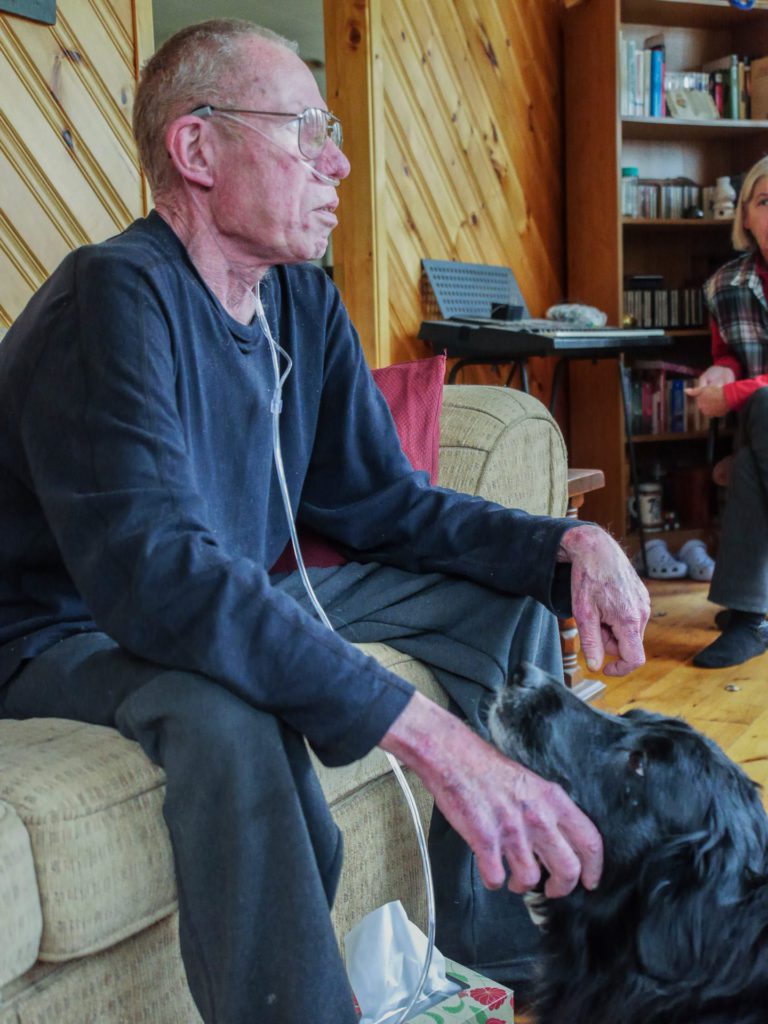
“Have you ever thought about moving into town, to be closer to medical care?”
“Medical care is very good at coming here. We have a nurse coming once a week, paramedics who are part of the community paramedic program come once a week, a social worker and palliative care nurse practitioner come once a month. So there’s an awful lot of activity.”
“The paramedic is terrific. He checks my oxygen levels, blood pressure, temperature, breathing, what my air movement is like, or if I am really wheezy. He’s not a doctor but he is quite knowledgeable. At least I think he is. He offers advice, mostly about breathing exercises. It seems to be sound advice and I do take it. And, he is a friend.”
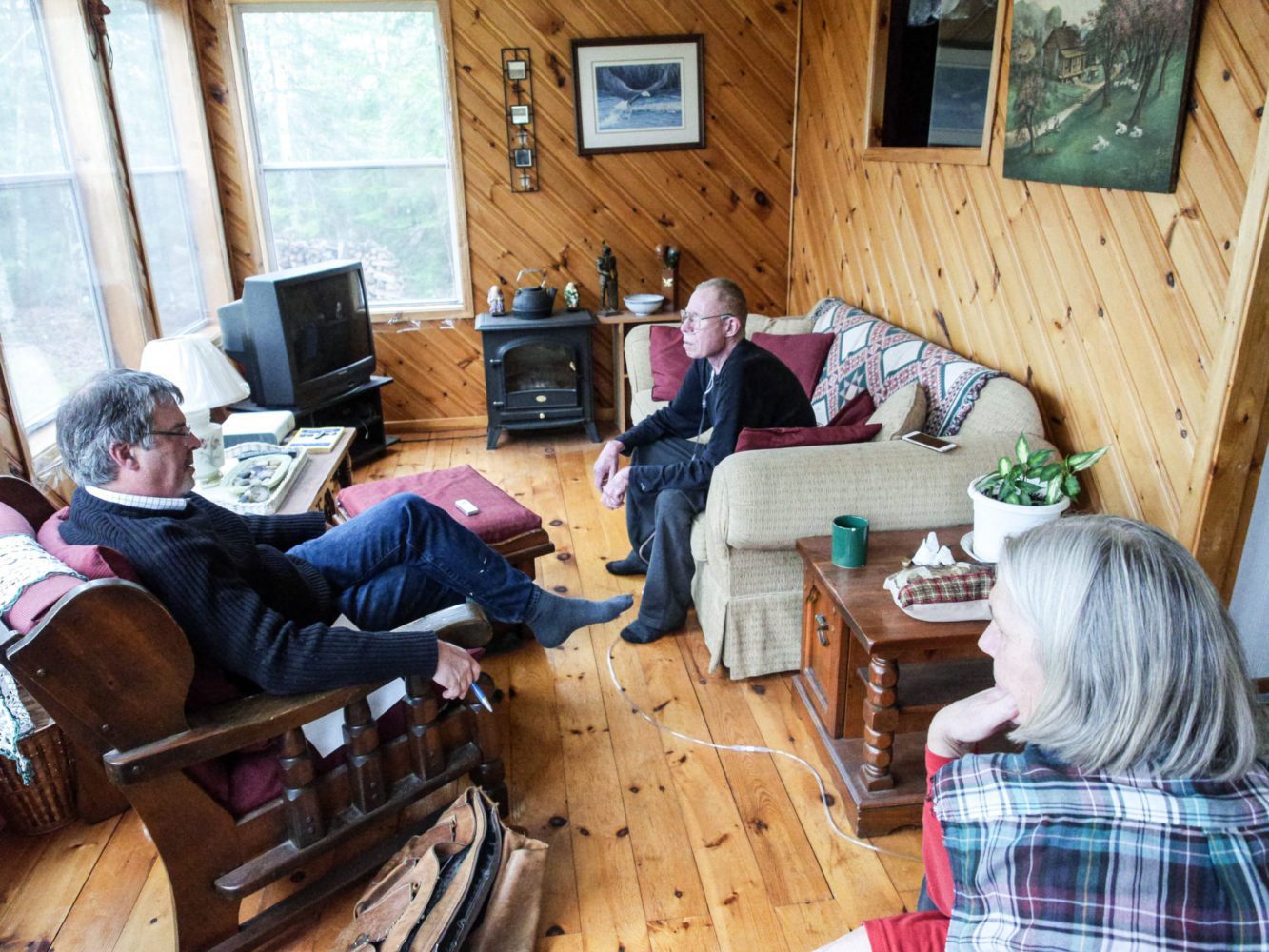
“Lynne, as Bruce’s caregiver, how long can you leave the house for?”
LYNNE: “Comfortably, three hours.”
BRUCE: “If I know she is going to be gone for four hours, I am fine. If I think she is going to be gone for three hours and we are going on four hours, I start to worry. And that annoys her. If she says, ‘I am just going to the store,’ well, that’s like a 40 minute trip. If an hour and half later she is not back I think ‘What the hell is going on? Was she involved in accident?’ (We don’t have a cell phone.) I don’t want to be alone at night any more at all. When the dark sets in, I want somebody home.”
“If Bruce becomes very short of breath, how long does it take for 911 to come?”
LYNNE: “It depends. I have it down to a fine art. I ask where they are coming from. I know if they tell me Pembroke, they will be here in 30 to 35 minutes. When they tell me Renfrew, I kind of know that it’ll be an hour. We know all of the paramedics by name. And they all know us. Because they now know exactly where we live, they can get here faster.”
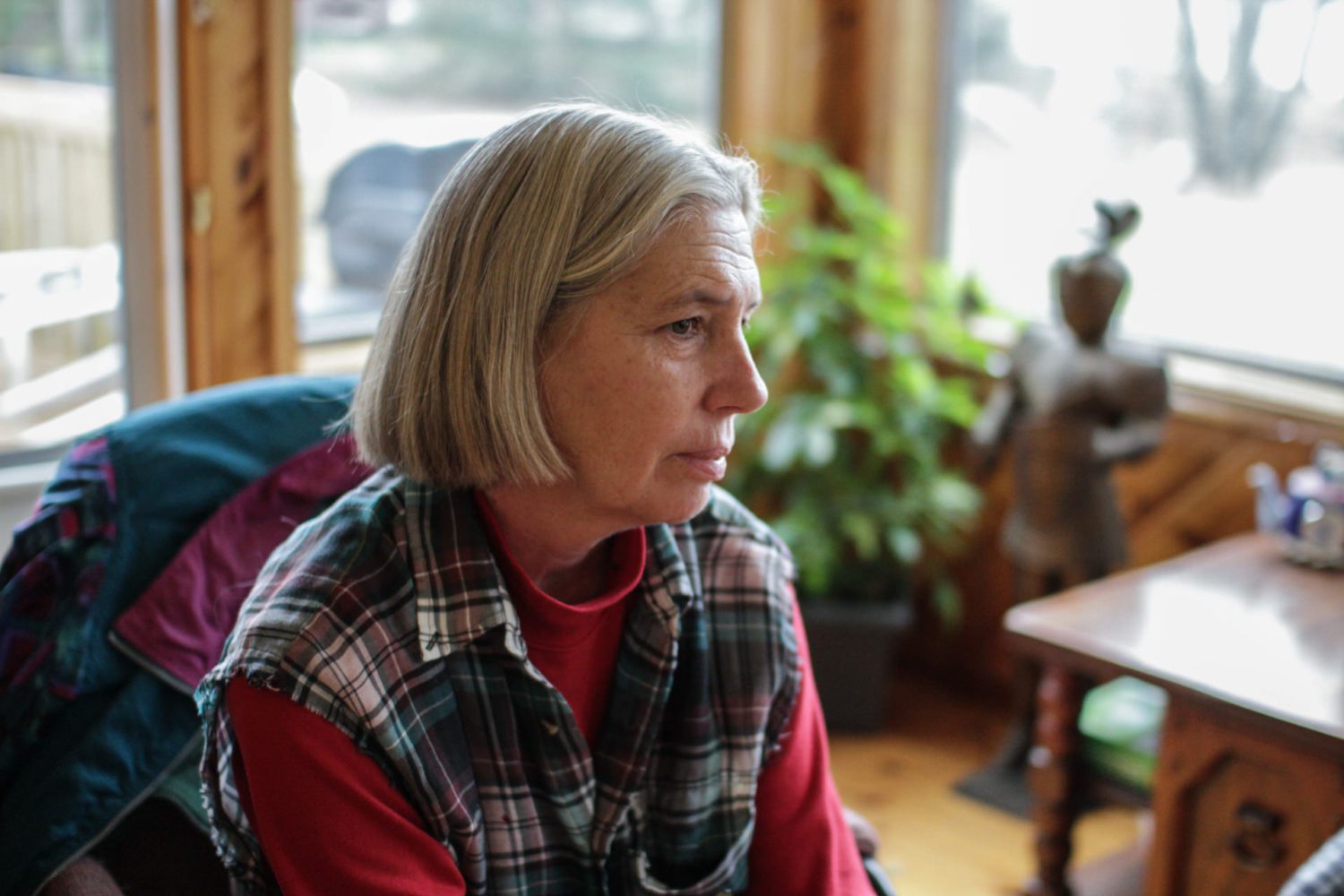
“The government does not provide financial assistance to patients and caregivers who stay at home – outside of covering medications and the visits from medical and support staff. But they’re saving a fortune by keeping all these people at home. I’m caring for him full time, with no pay. I’m paying for food, for the mortgage, for the gas to pick up medications, for the hydro. And when you’re running an oxygen machine 24/7, that really runs up your hydro bill. I’m in arrears with hydro. I’m like, ‘Yeah, and you want me to pay it how?'”
“Nobody should have to be a full-time caregiver to someone they love. It’s a horrid situation.”
The fact that the government doesn’t provide you with the income to provide that care – that financial burden just adds to the stress you’re already under.
“The paramedics are aware of my stress. When they leave, I walk them out and they always ask, ‘How are you doing? Do you have any support?’ That’s the problem. I don’t. There is no support other than when they come. We really have no friends here. It’s just us. Most of the houses near us are seasonal. The friends we did have moved back to Ottawa.”
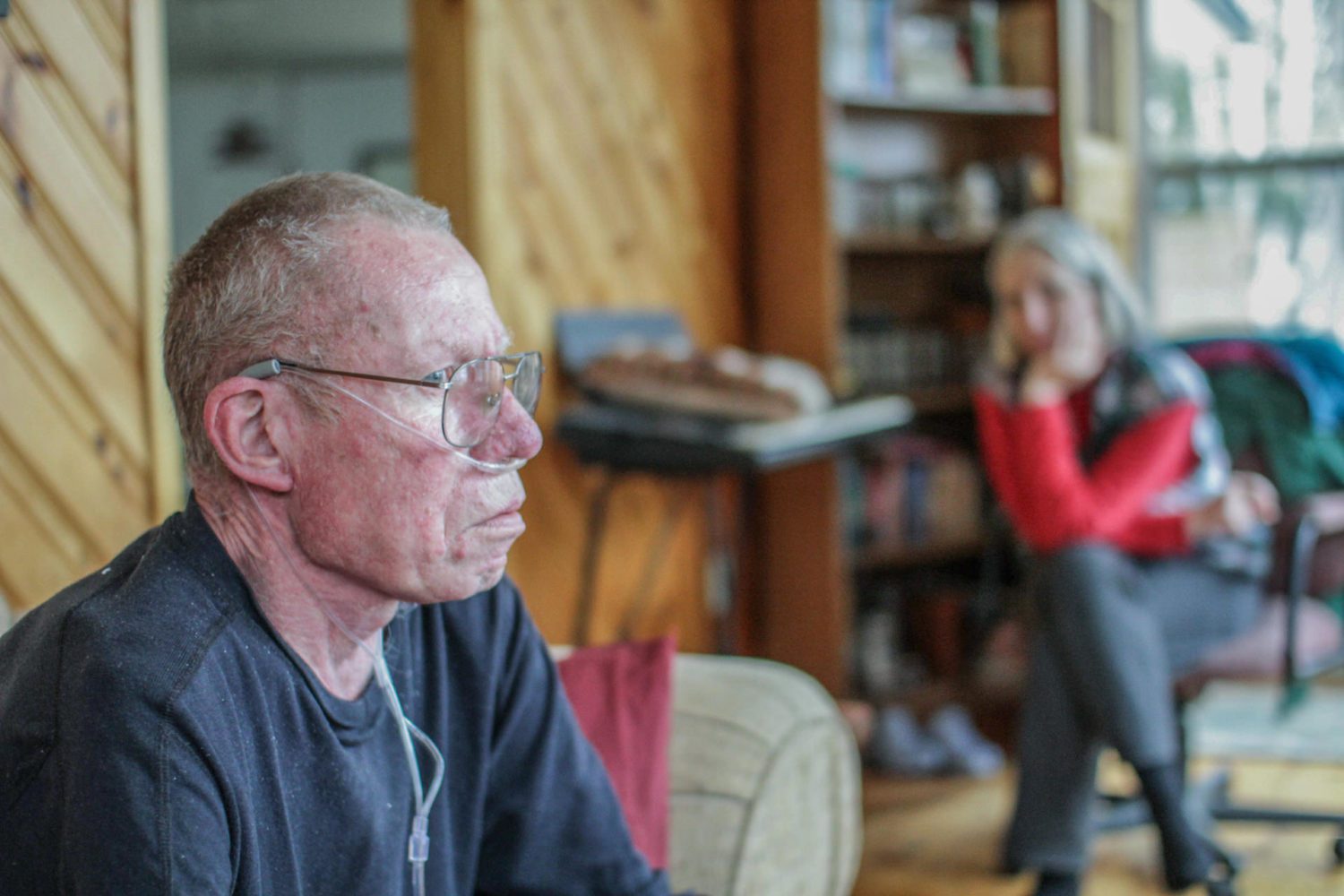
“How are you doing emotionally?”
BRUCE: “I am pretty tired of it. I am getting tired of the stress. We just had our counsellor in yesterday. We fight a lot. We are going to try and curb that.”
LYNNE: “Stress levels are very high with Bruce’s COPD being end stage. Nobody can say in three months or six months…so it’s day to day. I am forever being reminded that he sits on the fence and could fall off one way or the other, and make it or not. The emotions run quite tight. Thank God that we have the paramedics. They are the best of the best. They are top notch.”
BRUCE: “I find when my paramedic walks through the door…. it’s calming in itself.”
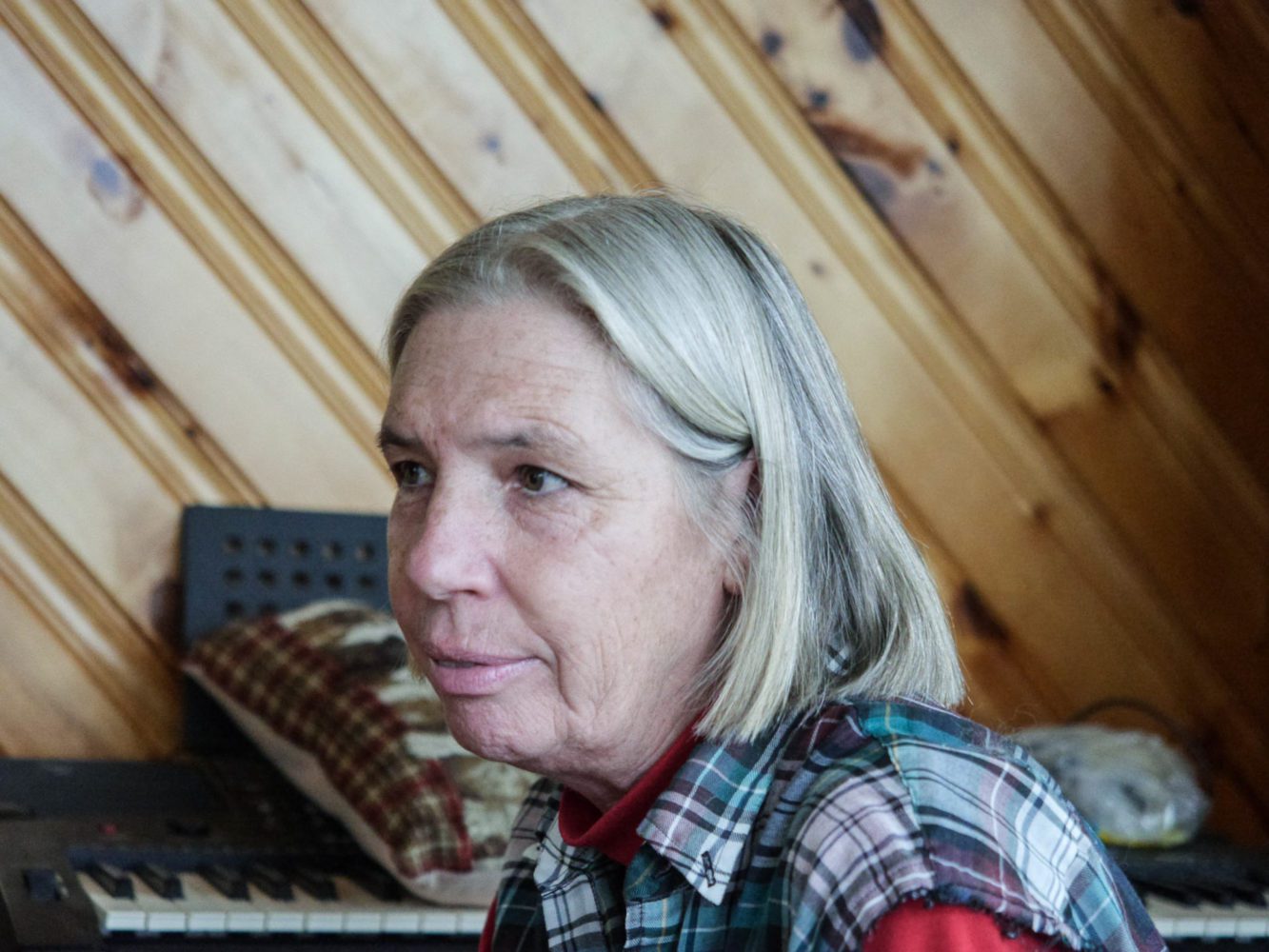
“Our nurses are delightful. But the company that manages the nurses and the personal support workers leaves a lot to be desired.”
When you phone, they are in an urban area hours from here. They have no clue about Renfrew County or its vastness.
“I had to go to my sister’s 50th wedding anniversary at the beginning of September. We agreed the personal support worker would come for two hours over lunch and then someone would stay overnight. But even by the time I had to leave they hadn’t confirmed the overnight person. Bruce only knew for sure near supper time that someone was really coming for the night. That was very stressful for him.”
“If Bruce passes at home, which is his wish, I am to phone the company to get them to send a nurse to pronounce him. I am terrified that I am going to be here alone with his body for six hours because they can’t get their act together.”
Editor’s Note: After this interview was published, friends of Bruce and Lynne launched a GoFundMe campaign to help with their costs.


The comments section is closed.